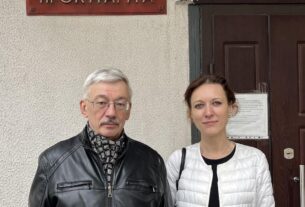This week, Texas Governor Greg Abbott signed three measures into law that will harm migrants, asylum seekers, and communities in Texas.
The laws build on Operation Lone Star, the state government’s now almost $12 billion “border security” program that has not been shown to reduce migration.
One law duplicates a federal statute known to have racist origins that would allow state and local police to arrest migrants entering Texas between official border crossings and charge them with either improper entry, punishable up to a year in prison, or improper re-entry, punishable from 2 to 20 years in prison.
This new law, which goes into effect in March, applies throughout Texas and is likely to increase racial profiling, already a problem under current Texas policies. It will likely jam up state courts and jail systems and distract police from ensuring public safety by requiring them to instead focus on arresting and prosecuting people seeking to rejoin family, find protection, or make a better life. Civil rights groups immediately challenged the measure in court on constitutional grounds.
Another measure creates a mandatory minimum sentence of 10 years in prison for people found guilty of smuggling or running a “stash house.”
Texas’ existing smuggling laws are already problematic: Human Rights Watch’s analysis of Operation Lone Star data found that nearly 80 percent of those booked for smuggling were US citizens. Almost 13 percent were 18 or 19.
These laws may also provide further encouragement to state troopers and police to engage in deadly vehicle pursuits, which have killed at least 74 people and injured another 189 over 29 months, as Human Rights Watch recently documented.
Finally, another law will more than double the funding to continue border wall construction, adding $1.54 billion to an existing purse of nearly $1.5 billion to build 40 miles of barriers along Texas’ 1,200-mile border with Mexico. That’s more than $65 million per mile.
The Texas government could instead invest these billions into education, health services, housing, and infrastructure so struggling families in Texas can buy food and communities can thrive.


